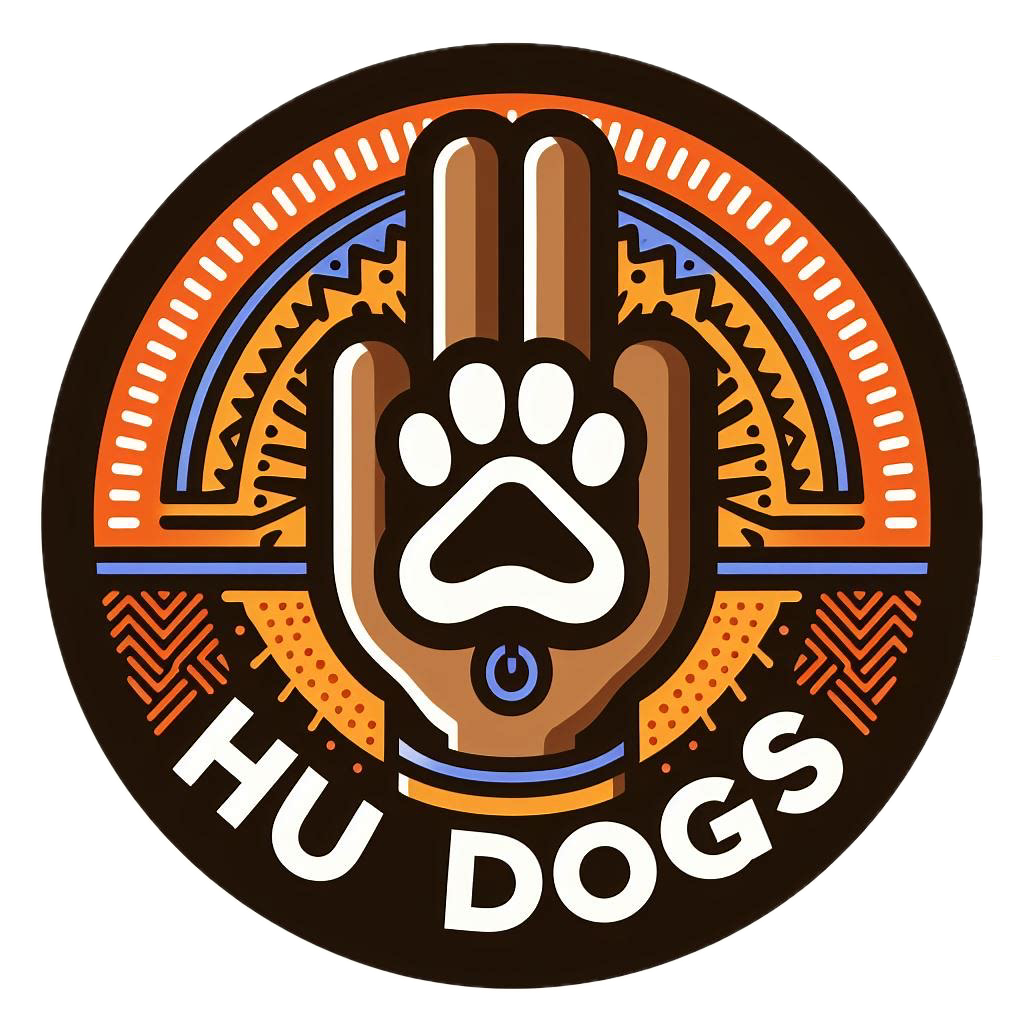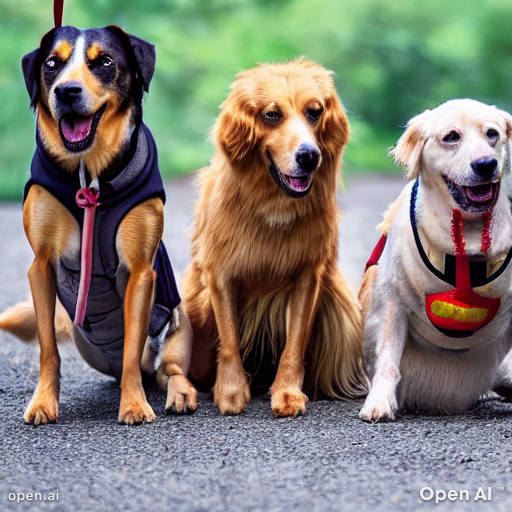Introduction Roles Of Dogs In Society:
Dogs have been an integral part of human society for centuries, serving various roles and fulfilling a wide range of functions. From being loyal companions to performing essential tasks, dogs have made a significant impact on our lives. In this blog post, we will explore the diverse roles that dogs have played throughout history, their evolution, and the benefits they bring to our society.
Table of Contents
Companionship (Modern Pets/Family)
Dogs have long been known as man’s best friend, providing companionship and unconditional love. In modern times, dogs have become cherished members of the family, offering emotional support, stress relief, and endless joy. Their loyal and affectionate nature makes them ideal companions for individuals and families alike. The bond between humans and dogs has evolved over time, transitioning from working relationships to more emotionally-driven connections.
Medical Response Dogs
Medical response dogs are highly trained canines that assist individuals with medical conditions. These remarkable dogs can detect subtle changes in their owner’s body odor, allowing them to anticipate and respond to medical emergencies such as seizures, hypoglycemia, or allergic reactions. Their acute sense of smell and ability to provide timely assistance have saved numerous lives and significantly improved the quality of life for those with medical conditions.
Herding Dogs
Herding dogs have been essential to the agricultural industry for centuries. Their natural instincts and intelligence make them skilled herders, helping farmers move and manage livestock efficiently. Whether it’s guiding sheep, cattle, or other animals, herding dogs excel at maintaining control and ensuring the safety of the herd. Despite advancements in technology, herding dogs continue to play a vital role in farming and ranching operations around the world.
Police Dogs
Police dogs, commonly known as K9 units, have been an invaluable asset to law enforcement agencies for many years. These highly trained dogs assist in various tasks such as search and rescue operations, tracking suspects, detecting narcotics, and apprehending criminals. Their keen sense of smell, agility, and obedience make them indispensable in solving crimes, ensuring public safety, and supporting the work of law enforcement officers.
Hunting Dogs/Flushing Dogs
Throughout history, humans have relied on dogs for hunting game. Hunting dogs, such as retrievers and pointers, have been bred and trained to assist hunters in tracking, retrieving, and flushing out game birds and small mammals. Although hunting practices have evolved and become less common in some regions, hunting dogs continue to contribute to the hunting community, assisting in wildlife management, and preserving traditional hunting traditions.
Sled Dogs
Sled dogs have a long history of playing a crucial role in Arctic regions and other snowy landscapes. These robust and endurance-driven dogs, including breeds like Siberian Huskies and Alaskan Malamutes, pull sleds across vast distances, transporting people and supplies in harsh environments. Sled dogs were instrumental in early exploration and played a vital role in transportation before the advent of modern vehicles. Today, sled dogs still participate in races and are treasured for their athleticism and spirit.
Service Dogs (Hearing, Guide, and Mobility)
Service dogs are trained to assist individuals with disabilities, enhancing their independence and overall quality of life. Hearing dogs alert their owners to sounds such as doorbells or alarms, guide dogs navigate visually impaired individuals through obstacles, and mobility dogs assist those with physical limitations by retrieving objects, opening doors, and providing stability. These highly trained and dedicated service dogs serve as vital companions and support systems for individuals with disabilities.
Guard Dogs/Watch Dogs
Guard dogs and watch dogs have been utilized for centuries to protect properties, livestock, and people from potential threats. Their keen senses, natural instincts, and protective nature make them ideal for guarding homes, businesses, and valuable assets. While guard dogs are trained for specific security roles, watch dogs serve as a deterrent by alerting their owners to potential intruders through barking or other vocalizations.
Therapy Dogs
Therapy dogs play a vital role in providing comfort, support, and companionship to individuals in various settings, including hospitals, nursing homes, schools, and rehabilitation centers. Their calm temperament and friendly demeanor make them ideal for therapeutic interactions, helping to reduce anxiety, provide emotional support, and facilitate healing. Therapy dogs bring joy and unconditional love to those in need, making a positive impact on individuals’ mental and emotional well-being.
Emotional Support Dogs
Emotional support dogs provide comfort and reassurance to individuals struggling with mental health issues such as anxiety, depression, or post-traumatic stress disorder (PTSD). These dogs offer a sense of security, help alleviate symptoms, and provide emotional stability. While emotional support dogs do not have the same legal rights and access as service dogs, their presence can be immensely beneficial for those in need of emotional support.
Detection Dogs (Bomb/Drug)
Detection dogs, trained to sniff out specific scents, have become indispensable in security and law enforcement. Whether it’s detecting explosives, narcotics, or other illicit substances, these highly skilled dogs have the ability to identify hidden contraband in various environments. Their accurate and efficient detection capabilities aid in preventing criminal activities, enhancing public safety, and supporting the work of security personnel.
Rescue Dogs (Water Rescue Dogs & Mountain Rescue Dogs)
Rescue dogs specialize in locating and saving individuals in emergency situations. Water rescue dogs are trained to assist in water-based rescues, such as finding drowning victims or providing aid during floods. Mountain rescue dogs excel in locating and reaching individuals trapped in mountainous or avalanche-prone regions. Their agility, endurance, and specialized training make them invaluable in saving lives during challenging circumstances.
Seizure Response Dogs
Seizure response dogs are trained to provide assistance and support to individuals with epilepsy or other seizure disorders. These dogs are adept at recognizing the signs of an impending seizure and can alert their owners, retrieve medication, provide physical support during a seizure, and even activate emergency response systems. Their presence and assistance offer a greater sense of security and independence for those living with seizure disorders.
Dog Mascots
Dog mascots play an essential role in representing sports teams, organizations, and institutions. These mascots often embody the spirit, character, or values associated with the entity they represent. Dog mascots bring joy to fans, foster team spirit, and serve as beloved symbols of pride and loyalty.
Fighting Dogs
Fighting dogs, though widely condemned today, have unfortunately played a historical role in organized blood sports. These dogs were bred and trained for combat, typically against other dogs, for entertainment purposes. However, it is important to note that dogfighting is illegal in most countries due to its cruelty and inhumane nature.
Racing Dogs
Racing dogs, such as Greyhounds and Whippets, have long been celebrated for their incredible speed and agility. These dogs compete in various forms of racing, including track racing and coursing. While the popularity of racing dogs has declined in some regions due to ethical concerns, organized events still exist, and retired racing dogs often find loving homes as pets after their careers.
Truffle Sniffing Dogs
Truffle sniffing dogs are trained to detect the elusive and valuable truffle fungus. Their keen sense of smell and ability to pinpoint the location of truffles buried beneath the ground make them essential partners for truffle hunters. These dogs play a crucial role in the truffle industry, aiding in the harvesting of these highly sought-after delicacies.
Show Dogs
Show dogs participate in dog shows and competitions, where they are judged based on
their conformation to breed standards, temperament, and overall appearance. These events showcase the beauty and excellence of various dog breeds. Show dogs require meticulous grooming, training, and presentation to excel in competitions. Beyond the competitive aspect, dog shows promote responsible breeding practices and highlight the diversity and unique qualities of different breeds.
Cadaver Detection Dogs
Cadaver detection dogs, also known as human remains detection dogs, are trained to locate and indicate the presence of human remains. These highly specialized dogs assist in locating missing persons, identifying crime scene evidence, and aiding in disaster response efforts. Their exceptional sense of smell allows them to detect even trace amounts of decomposing human tissue, providing crucial information to investigators and forensic teams.
Carting Dogs
Carting dogs, also known as draft dogs or working dogs, historically played a vital role in transporting goods and materials. These strong and sturdy dogs are harnessed to carts or wagons, pulling heavy loads over short distances. While the reliance on carting dogs for transportation has diminished with technological advancements, the practice continues as a recreational activity, showcasing the strength and working capabilities of various dog breeds.
War Dogs
War dogs have a long and storied history of serving alongside soldiers in military operations. From ancient civilizations to modern conflicts, dogs have been trained for combat, search and rescue, sentry duty, and detecting explosives. Their loyalty, courage, and ability to perform specialized tasks in challenging environments have saved countless lives and provided critical support to military personnel.
Rat Extermination Dogs
Rat extermination dogs, often small terriers or other breeds with strong prey drive, have been used for centuries to control rat populations. These dogs are adept at finding and dispatching rats in urban areas, warehouses, or agricultural settings. Their presence helps reduce the risk of disease transmission and property damage caused by rodents.
Entertainment Dogs
Entertainment dogs encompass a wide range of roles in the entertainment industry, including dog actors in movies, television shows, and commercials. These dogs undergo training to perform specific actions, display behaviors, or follow commands for on-screen appearances. Their talent, intelligence, and ability to work with handlers make them sought-after stars in the entertainment world.
Fashion Dogs
Fashion dogs, also known as canine models or fashionistas, have gained popularity through social media platforms and fashion events. These stylish dogs don fashionable outfits and accessories, often representing luxury brands or promoting pet-related products. Their adorable looks and sense of style have earned them a significant following and created a niche within the fashion industry.
Personal Protection Dogs
Personal protection dogs, also referred to as guard dogs or personal security dogs, are specifically trained to protect individuals, families, or properties. These highly skilled dogs possess strong protective instincts, exceptional obedience, and the ability to assess threats accurately. Personal protection dogs offer a sense of security and peace of mind to their owners, acting as a deterrent and providing immediate response if a dangerous situation arises.
In conclusion, Dogs have played diverse and essential roles in society throughout history, and their contributions continue to be significant in the present day. Whether as beloved companions, working partners, or service animals, dogs bring immense joy, support, and practical benefits to individuals and communities. Understanding and appreciating the multifaceted roles of dogs in society can deepen our connection with these incredible animals and further strengthen the bond between humans and dogs.

